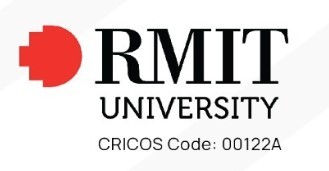
Bachelor of Engineering (Environmental Engineering) (Honours)


Overview
Duration
FULL-TIME 4 YEARS
FULL-TIME 4 YEARS
Scholarship
YES
YES
Fee
AU$43,200
AU$43,200
Intake
FEBRUARY, JULY
FEBRUARY, JULY
- Gain the skills and knowledge you'll need to enter the diverse and rewarding field of environmental engineering.
- RMIT's Bachelor of Engineering (Environmental Engineering) (Honours) offers you the chance to specialise in engineering fields critical to solving the world’s environmental challenges. Land contamination and rehabilitation, energy, hydrogeology, wastewater treatment, and sustainable cities are strong focus areas.
- During your environmental studies, you’ll learn engineering concepts and technical skills to:
- preserve the environment
- minimise water, soil and air pollution
- assess the environmental impact of engineering projects
- develop remediation measures for environmental degradation
- deliver sustainable solutions through engineering processes.
- Elective subjects such as the Humanitarian Experiential Learning Project will provide you with the opportunity to gain a global perspective on the world’s environmental challenges and the role environmental engineers can play in solving them.
- Graduate from this degree with the skills and knowledge to conserve water resources, supply safe drinking water in challenging contexts, undertake rehabilitation of contaminated land and groundwater, design systems to sustainably manage wastes and reduce the environmental footprint in urban and rural communities, and prepare environmental impact studies for major infrastructure projects.
Inquire Now
Career
- As a graduate of this degree, you will have a real opportunity to make a significant difference to the world by introducing sustainable practices to preserve the environment, remediating environmental disasters, and preparing the community for the adverse effects of climate change.
- Environmental engineering offers you diverse career options. As an environmental engineer, you will be able to pursue a career in:
- environmental consultancies
- government departments and regulatory bodies
- contaminated land assessment industries
- non-government environmental and humanitarian sectors
- the mining industry
- water treatment, landfill and other essential site operators.
- RMIT graduates have gone on to work at a range of organisations including:
- EPA Victoria
- Water corporations (Melbourne Water, South East Water, City West Water)
- Department of Environment, Land, Water and Planning
- Global and local consultancies.
Entry requirements
- To study this course you will need to complete one of the following English proficiency tests:
- IELTS (Academic): minimum overall band of 6.5 (with no individual band below 6.0)
- TOEFL (Internet Based Test - IBT): minimum overall score of 79 (with minimum of 13 in Reading, 12 in Listening, 18 in Speaking and 21 in Writing)
- Pearson Test of English (Academic) (PTE (A)): minimum score of 58 (with no communication band less than 50)
- Cambridge English: Advanced (CAE): minimum of 176 with no less than 169 in any component.
Popular Courses
Start your journey with landmark today!
Find your perfect course
Answer a few questions and
our course matcher will do the rest
Head Office
Level 5, IT Plaza
Kamaladi, Kathmandu
Tel: +977 14542781, 9845566225
E-mail: info@landmarkedu.com
Kamaladi, Kathmandu
Tel: +977 14542781, 9845566225
E-mail: info@landmarkedu.com
Sydney office
Suite 1 Level 1,
46 Macquarie Street,
Parramatta, NSW
Tel: +61 415 122 814
46 Macquarie Street,
Parramatta, NSW
Tel: +61 415 122 814
Branch office
Sahidchowk, Chitwan
Tel: 056-590825
Tel: 056-590825
Mahendrachowk, Biratnagar
Tel: 021-590828
Tel: 021-590828
Level 2, Milanchowk, Butwal, Rupandehi
Tel: 977-71-591694
Tel: 977-71-591694
© Landmark Education. All rights reserved.


